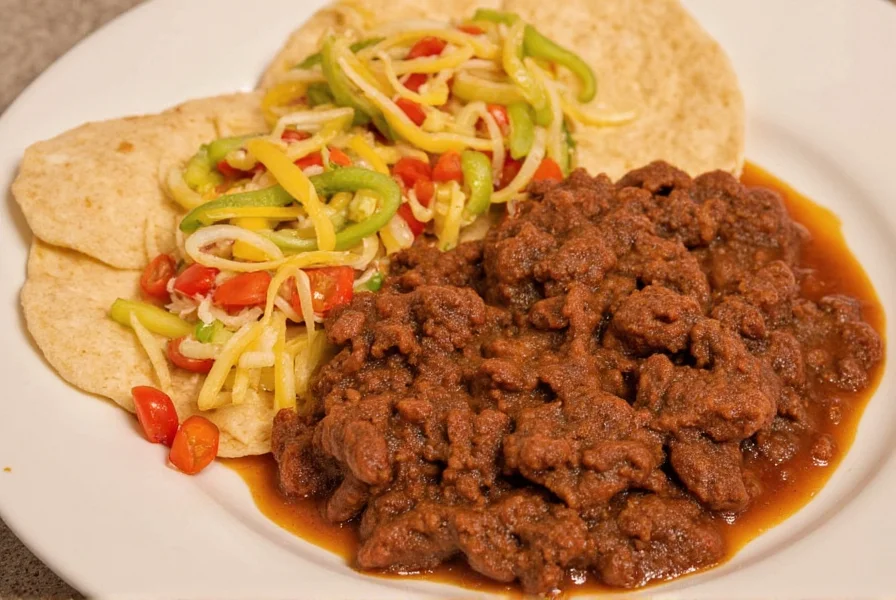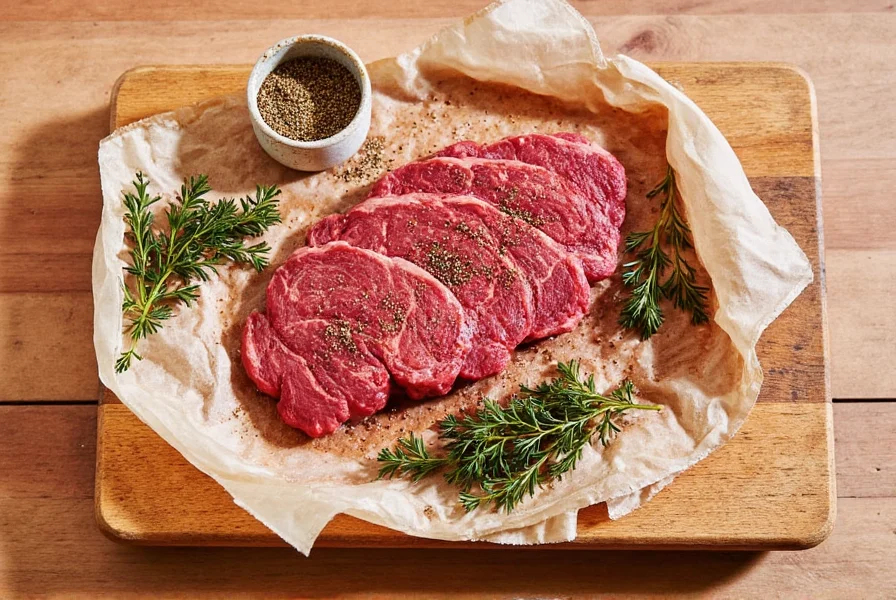Table of Contents
Clarifying the Terminology: What Is "Enchilada Seasoning for Beef"?
Let's address the elephant in the room: "enchilada seasoning beef" isn't actually a product category. This common search term reflects a misunderstanding - there's no special seasoning exclusively for beef enchiladas. Enchilada seasoning is a spice blend used to flavor the meat in beef enchiladas.
When you search for "enchilada seasoning beef," you're likely looking for either:
- A complete beef enchilada recipe with proper seasoning instructions
- Information on which seasoning blend works best with beef
- Clarification about why this search term is misleading
You've come to the right place. Below you'll find an authentic beef enchilada recipe using the perfect seasoning ratio, plus professional tips that most blogs miss. Skip to the recipe section for immediate results or read on for complete mastery of this classic dish.
Authentic Beef Enchilada Recipe (6 Servings)
Traditional Mexican enchiladas use a simple, balanced seasoning approach - not an overly complicated spice mix. Here's the professional method for authentic beef enchiladas:
Ingredients
- 1.5 lbs (680g) ground beef (85% lean for best flavor)
- 2 cups (480ml) red enchilada sauce (homemade preferred)
- 12 corn tortillas (6-inch size)
- 2 cups (230g) shredded Monterey Jack cheese
- 1/2 cup (120ml) vegetable oil (for tortilla softening)
Seasoning Blend (Makes enough for 1.5 lbs beef)
- 2 tbsp chili powder (Ancho preferred)
- 1 tbsp ground cumin
- 1 1/2 tsp garlic powder
- 1 1/2 tsp onion powder
- 1 tsp dried oregano (Mexican preferred)
- 1/2 tsp smoked paprika
- 1/2 tsp salt
- 1/4 tsp black pepper
- 1/8 tsp cayenne (optional for heat)

Step-by-Step Instructions
- Prepare the beef: In a large skillet over medium heat, cook ground beef until browned (5-7 minutes). Drain excess fat.
- Add seasoning: Stir in the seasoning blend and cook for 1 minute to toast the spices.
- Add liquid: Pour in 1/2 cup enchilada sauce and simmer for 3 minutes until thickened.
- Heat tortillas: Heat oil in a small pan. Briefly fry each tortilla for 10 seconds per side to soften.
- Assemble: Dip each tortilla in warm enchilada sauce, fill with 1/4 cup beef mixture, roll, and place seam-side down in baking dish.
- Bake: Cover with remaining sauce and cheese. Bake at 350°F (175°C) for 20 minutes until bubbly.
Homemade Enchilada Seasoning Blend: Why It Beats Store-Bought
Most "enchilada seasoning for beef" products contain unnecessary fillers. This professional blend delivers authentic flavor without additives:
| Ingredient | Professional Measurement | Why It Matters |
|---|---|---|
| Ancho chili powder | 2 tbsp | Provides deep, fruity flavor (not just heat) - superior to generic chili powder |
| Ground cumin | 1 tbsp | Essential earthy note but shouldn't dominate (common mistake in store blends) |
| Dried Mexican oregano | 1 1/2 tsp | More citrusy than Mediterranean oregano - crucial for authentic flavor |
| Smoked paprika | 1/2 tsp | Adds subtle smokiness without liquid smoke (found in many commercial blends) |
Pro Tip: Toast whole cumin seeds and dried chilies in a dry pan before grinding for exponentially better flavor. This extra step (missing from most recipes) transforms ordinary seasoning into restaurant-quality.
Pro Cooking Tips for Perfect Enchiladas Every Time
The Tortilla Secret Most Cooks Miss
Few recipes explain why you need to fry or heat tortillas before rolling. Corn tortillas contain starches that make them brittle when cold. The brief heat exposure:
- Activates natural gums in the corn
- Makes tortillas pliable without breaking
- Creates a barrier that prevents sauce from making them soggy
Sauce Temperature Matters
Using cold sauce on warm tortillas causes them to absorb too much liquid and fall apart. Always warm your enchilada sauce to at least 140°F (60°C) before assembling.

Common Mistakes to Avoid
- Over-seasoning: Most store blends are too salty. When using homemade seasoning, you control the salt level.
- Skipping the toasting step: Raw spices taste flat. Toasting develops complex flavors.
- Using room temperature sauce: Causes tortillas to absorb too much liquid and disintegrate.
- Overfilling tortillas: 1/4 cup filling per tortilla is optimal - more causes breakage.
Storage and Reheating Guide
Properly stored enchiladas maintain quality for:
- Refrigerator: 3-4 days in airtight container
- Freezer: 2-3 months (thaw overnight in refrigerator)
Best reheating method: Cover with foil and bake at 325°F (163°C) until center reaches 165°F (74°C). Avoid microwaving which makes tortillas rubbery.
Authentic Recipe Variations
- Tex-Mex style: Add 1/4 cup chopped green chilies and use cheddar cheese
- Healthier option: Use ground turkey and increase oregano by 50% to compensate for milder meat flavor
- Restaurant-style: Add 2 tbsp masa harina to the sauce for authentic texture
Frequently Asked Questions
Understanding the terminology confusion behind 'enchilada seasoning beef' is the first step to making authentic enchiladas. Now that you have the professional techniques, you'll never settle for bland, store-bought seasoning blends again. These methods have been refined through decades of Mexican culinary tradition - not marketing gimmicks.










 浙公网安备
33010002000092号
浙公网安备
33010002000092号 浙B2-20120091-4
浙B2-20120091-4